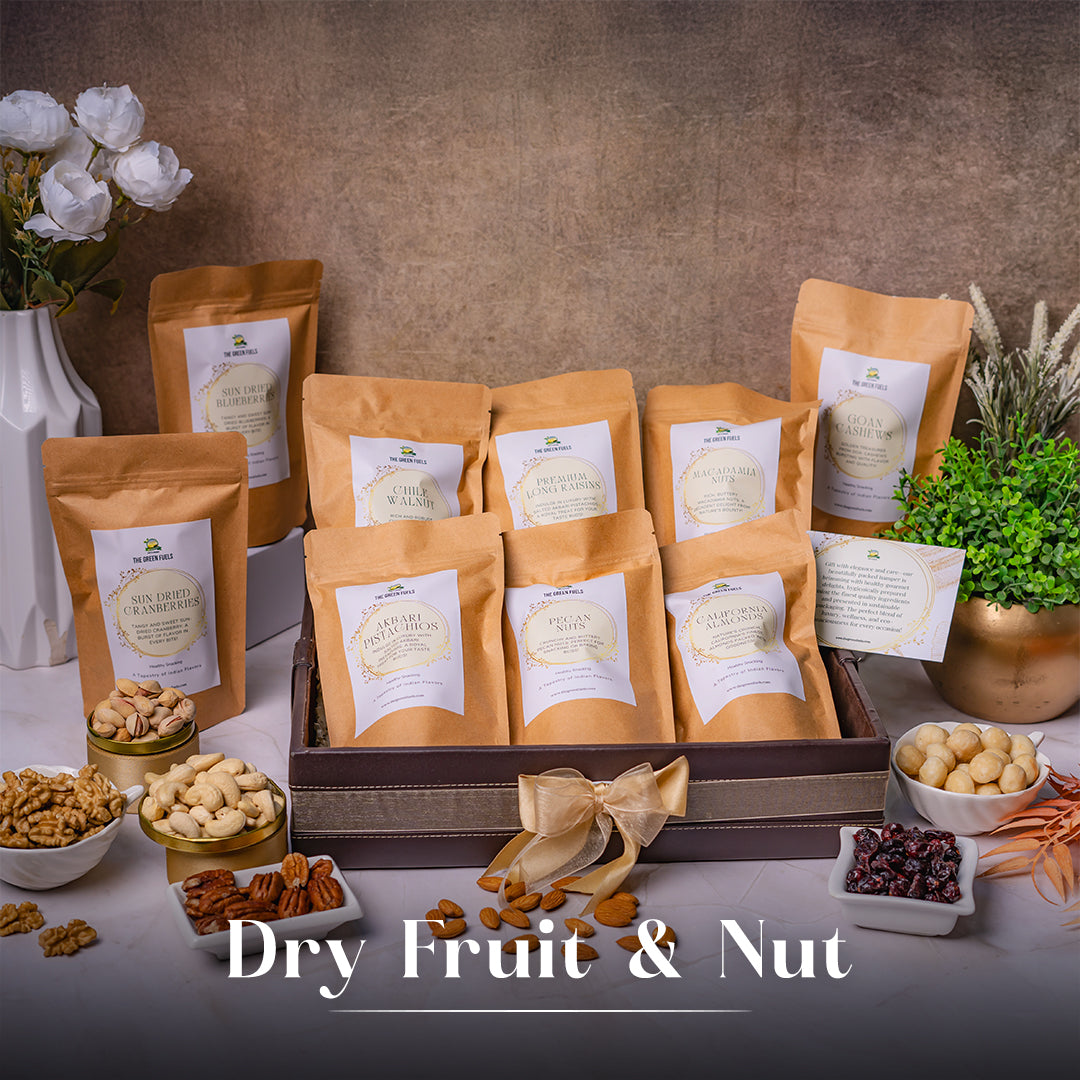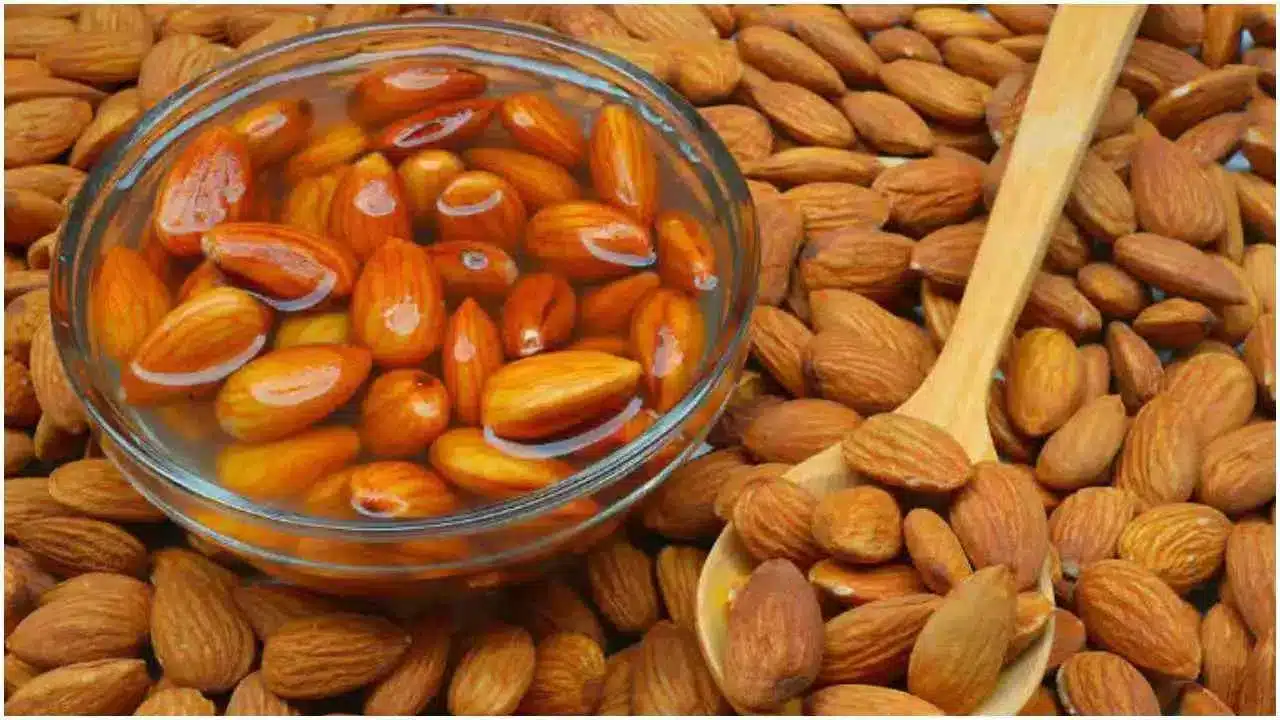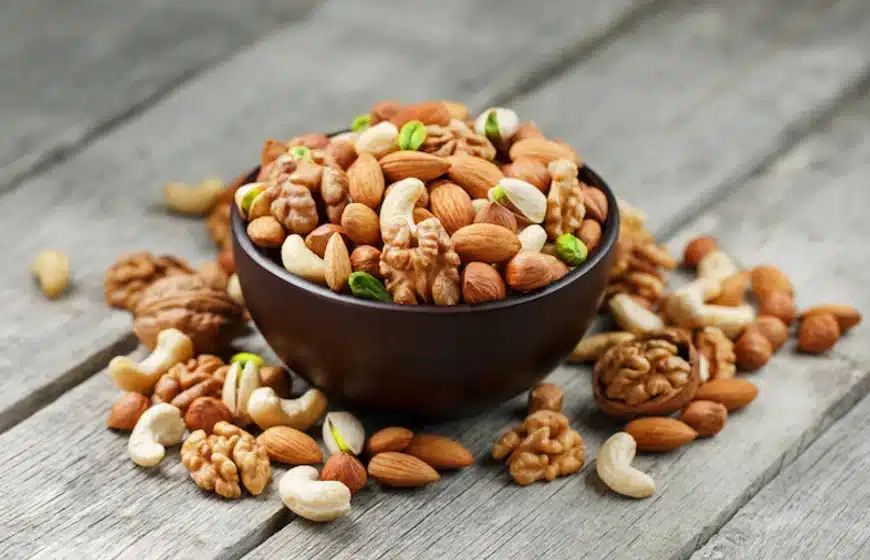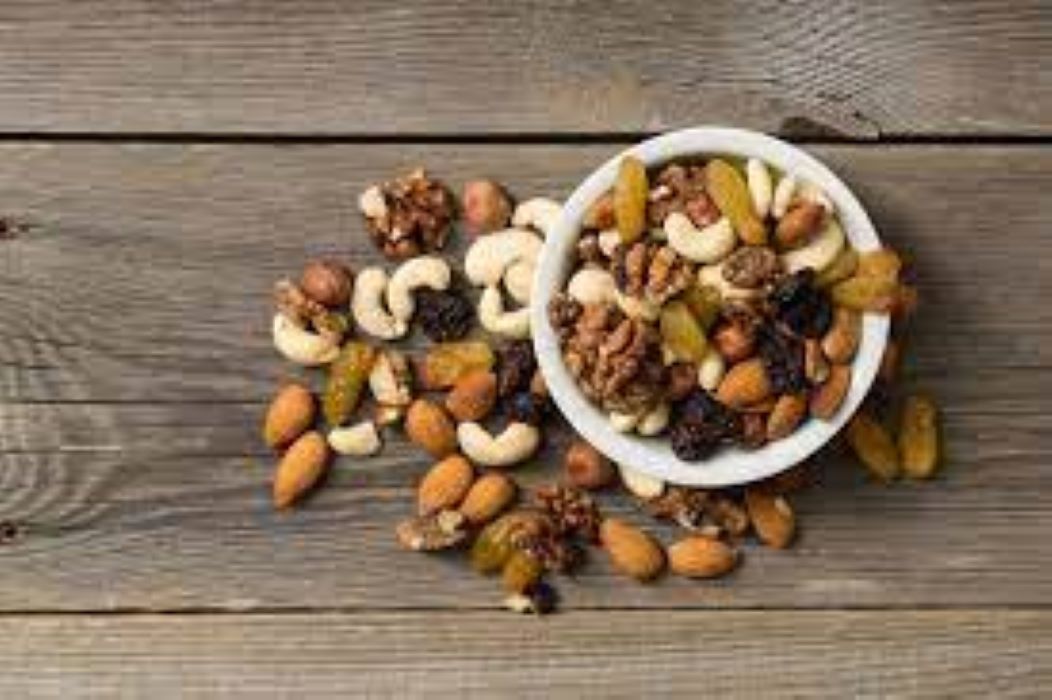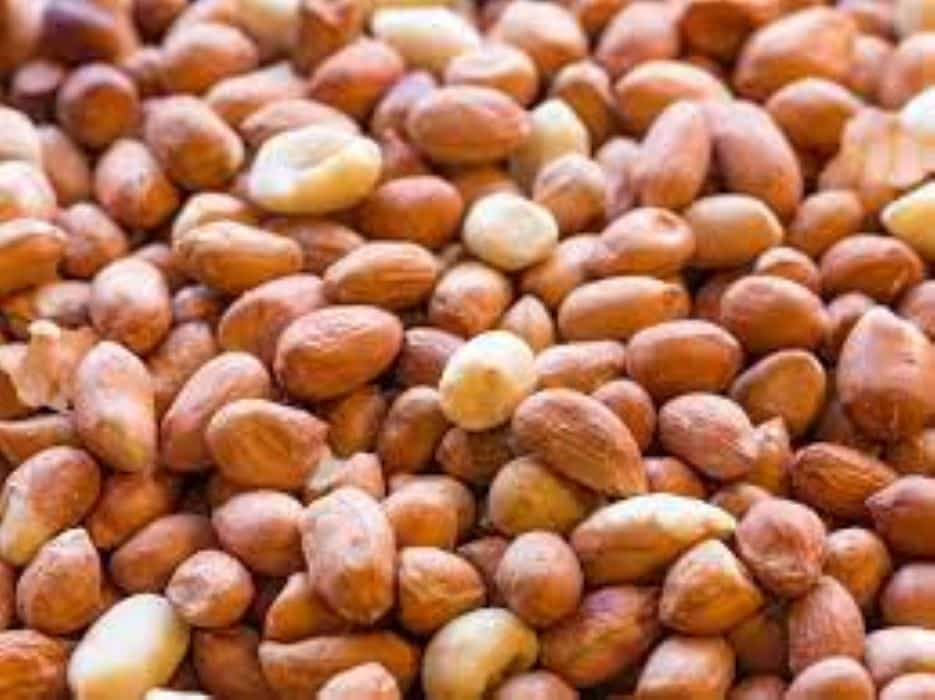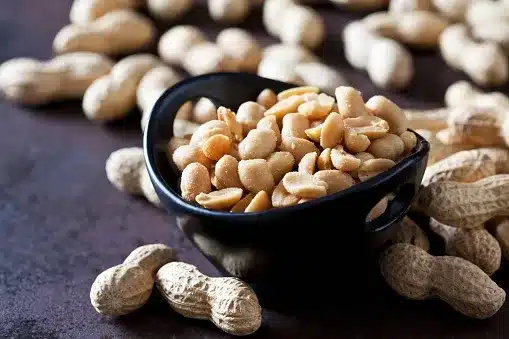Blog
The Ultimate Guide to Dry Fruits for Babies?
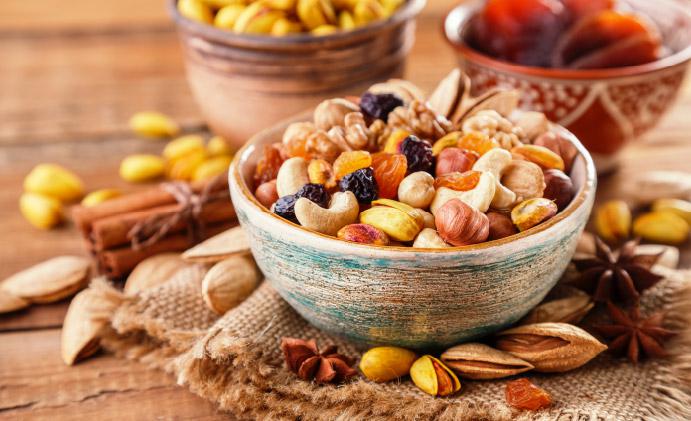
Why Choose Dried Fruits for Babies?
Dry fruits have a lot of health benefits that can be passed on to babies, hence you should include them in their diet. It is strongly suggested that you get them:
1. Nutrient Density: Vitamins, minerals, fiber and other nutrients that contribute to a child’s growth and development are present in dry fruits in abundance.
- Natural Sweetness: Sweetness that is contained in the dry fruits themselves: Dates, raisins, and other dry fruits have their own sweetness, being a better alternative to processed snacks.
- Digestive Health: This is because they are rich in fiber, dry fruits can play a role in digestion, preventing kids from getting constipated, and promoting healthy gut microorganisms.
- Helps the immune system: Dry fruits contain antioxidants and phytochemicals that boost the immune system, so they help the babies to fight off infectious and diseases.
- Brain Development: The omega-3 fatty acids found some kinds of dry foods, like almonds, are very important for brain growth and proper brain function.
Best Dry Fruits for Babies
Now let’s talk about the specific dry foods that are safe for your child and also very good for them:
1. Dates:
People adore dates because they are naturally sweet and have a soft, chewy texture. The dates taste good for babies because they contain important minerals such as iron, potassium, calcium and vitamin B6. Babies need iron especially to produce healthy blood and to prevent the development of iron deficiency anemia. Date also contain fibers that assist your body in digesting food and your bowel movements stay normal. Before handing your baby some dates, ensure you removed the pits and cut the dates into small pieces to prevent your baby from choking. You can serve this date puree either as a stand alone dessert or mix it with yogurt or other foods to make them more interesting.
2. Raisins:
People like to eat raisins which are grapes that have been dried and which taste sweet and have a soft texture. Due to the fact that they are rich in natural sugars, they make a perfect tasty and healthy snack for kids. Raisins have nutritional value because they contain a lot of iron, potassium and vitamins. Iron is a crucial mineral for babies as it enhances brain functioning and oxygenation of the body. Adding raisins will ensure that your baby get enough iron and have more energy. If a child likes raisins, try soaking the raisins in water to soften them or cutting them up to lower the risk of choking.
3. Cashew Nuts:
These nuts have rich, creamy, and slightly nutty taste that children love to eat. They are rich in protein, good fats, and vitamins and minerals such as zinc, magnesium, and phosphorus which are essential for your body. Cashews are a good source of energy for infants and enable their bones and muscles to develop correctly. However you need to be careful when adding cashew nuts as they may turn to choking hazards if you don’t make them properly. In order to prevent the babies from choking, pulverized or crushed cashews should be given to them. Don’t give them whole nuts until they reach the age when they can chew better.
4. Almonds:
Nuts like almonds in particular are very healthy as they are rich in protein, good fats, vitamin E, and calcium. For babies, they are very healthy for their skin and bones. There are also certain essential fatty acids, like omega-3s, in almonds. These acids allow the brain to grow properly and work well. Soak almonds overnight, peel them and offer them to babies to facilitate their digestion as well. Soaking almonds can result in a fine paste that can be mixed with your choice of either breast milk or formula to make almond milk for your infant. You may also spread almond butter on toast or dip fruits and veggies in so to make them better and get more nutrients.
Incorporating Dry Fruits into Your Baby’s Diet
There are many clever ways to feed your baby dry fruits that will help them get the most nutrition out of them:
1. Homemade Purees:
Simply pureed foods are the most common first option when introducing solids to babies, and dry fruits add the extra punch of nutrition to these healthy mixes. First, soak the dry fruits, like raisins or dates, in warm water for 2 minutes to make them softer. When they are soft, mix them with cooked vegetables such as butternut squash, carrots or sweet potatoes. The natural sweetness of the dry fruits will mean the mush will taste better, and so it will be more palatable to your baby. You can do this by mixing the fruits and veggies in different ways to have a lot of nutrients and tastes.
2. Oatmeal or Porridge:
One more excellent way to add them to baby’s diet is to cut or puree them and serve together with oatmeal or rice cereal. Just follow the directions on the package to cook either the oatmeal or the cereal and then add the dried fruit that is softened or pureed and mix them in before serving. This will not only make the food taste and feel better but it will also make it healthier. Meanwhile, as your baby gets accustomed to the solid foods, you can add more dry veggies gradually.
3. Yogurt Parfait:
Using different toppings like dry fruits helps us personalize our yogurt. In a small bowl or another container that is safe for children, mix mashed fruits, yogurt, and chopped nuts to create a yogurt parfait. Greek yogurt or whole milk yogurt can also be used to add protein and probiotics. It is not only a light and nutritive snack for your baby but also it is a chance for him to get familiar with different tastes and textures.
4. Homemade Energy Balls:
Energy balls are a fast and on-the-go snack that you can bring with you. They can be made of a variety of food such as dry fruits. Mix dates, nuts, seeds and oats in a food processor until you get a sticky dough. It will make energy balls which are safe for babies. Refrigerate the mixture until it becomes firm and then roll them into little balls. These energy balls are excellent as kids’ snacks on the go because they are portable and can provide kids with both energy and nutrients.
5. Smoothies:
The smoothie is great for sneaking in more nutrients and at the same time giving the baby a tasty and refreshing treat. A healthy vegan smoothie can be made by blending various fruits, leafy veggies, and soaked dry fruits. For sweetness, my smoothie will have banana, avocado, spinach, and raisins or dates that have been soaked. If this is required, you can alter the content by adding water, breast milk, or yogurt. Smoothies are very good for babies who are chewing because they are cold and calm.
The above ways of feeding your baby with dry fruits will ensure that you provide them various nutrients which are essential for their proper growth and development. It is important to supervise your young one when they are eating so as to rule out the possibility of new foods causing allergies or digestion issues. Switching to solid foods can also fun and healthy as long as you are patient and creative.
Dried fruits are rich in nutrients essential for the infants. They comprise important vitamins, minerals, and antioxidants. Speaking of dry fruits, the best ones to begin babies with are dates, raisins, cashew nuts, and walnuts. Safety is a major factor when introducing dry fruits to a baby’s diet. Therefore, cutting them up into small pieces that are easy to handle and being vigilant for allergies. By choosing to introduce dry fruits to your baby in a safe and balanced manner, you will enable your baby to get a large variety of tastes and nutrients, which are necessary for healthy growth and development.
Here is a list of 10 frequently asked questions about dry fruits for baby brain development:
- Q: Can dry fruits help in baby brain development?
A: Yes, dry fruits can contribute to baby brain development as they are packed with essential nutrients like omega-3 fatty acids, vitamin E, and antioxidants that support brain health. - Q: Which dry fruits are best for baby brain development?
A: Dry fruits that are beneficial for baby brain development include almonds, walnuts, cashews, and raisins. These provide essential nutrients like DHA, vitamin E, and iron. - Q: At what age can I introduce dry fruits to my baby for brain development?
A: It is generally recommended to introduce dry fruits to babies around 1 year of age, after consulting with a pediatrician. However, it’s important to make sure they are finely ground or mashed to prevent choking hazards. - Q: How should I serve dry fruits to my baby for brain development?
A: Dry fruits can be soaked overnight and then pureed, mashed, or finely powdered to ensure easy digestion for babies. You can mix them with foods like porridge or yogurt for added nutrition. - Q: How much dry fruits should I give my baby for brain development?
A: It is important to introduce dry fruits in moderation to avoid any digestive issues. Start with small quantities and gradually increase as per your baby’s tolerance. Consult with your pediatrician for specific recommendations. - Q: Are there any allergies or side effects associated with dry fruits for baby brain development?
A: While dry fruits are generally safe for babies, there may be allergies or sensitivities, such as nut allergies. Monitor your baby for any adverse reactions, and if you notice any symptoms, consult with a healthcare professional. - Q: Can I give my baby dry fruits daily for brain development?
A: You can include dry fruits as a part of your baby’s balanced diet, but it is important to maintain moderation. A variety of foods is essential for overall brain development, so make sure to include other nutritious foods as well. - Q: Are there any specific ways to store dry fruits for baby brain development?
A: To maintain the nutritional value of dry fruits, store them in airtight containers in a cool, dark place. Avoid exposure to moisture or direct sunlight to prevent spoilage. - Q: Can I give commercially available dry fruit products to my baby for brain development?
A: It is recommended to opt for homemade dry fruit preparations for your baby to ensure the quality and freshness of the ingredients. Commercial products may contain added sugars or preservatives, which may not be suitable for babies. - Q: Are there any alternatives to dry fruits for baby brain development?
A: If your baby has allergies or dislikes dry fruits, there are alternative foods that can support brain development, such as eggs, avocados, fortified cereals, and leafy green vegetables. Consult with your pediatrician to explore suitable alternatives.
I hope these answers provide helpful information about dry fruits for baby brain development.




